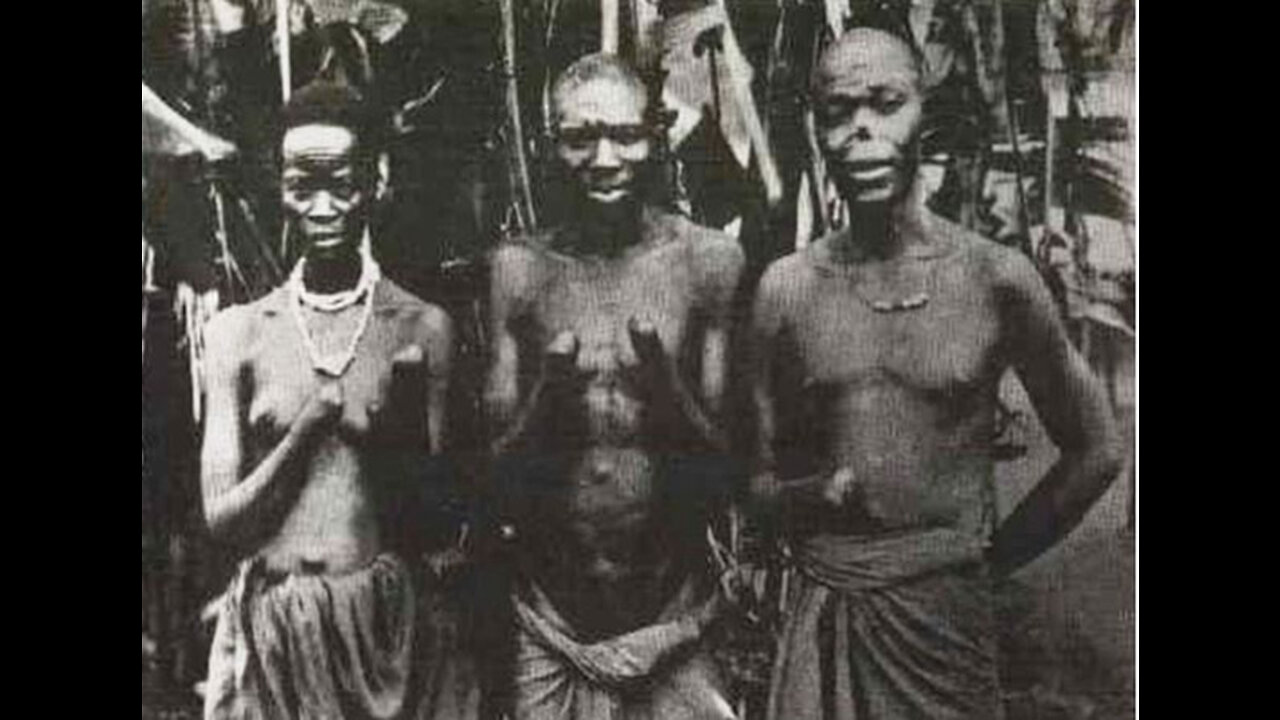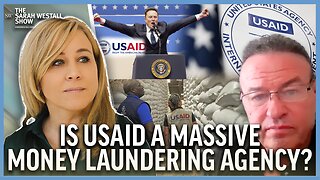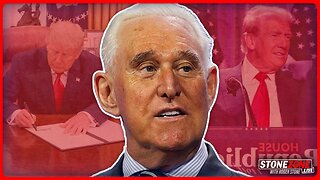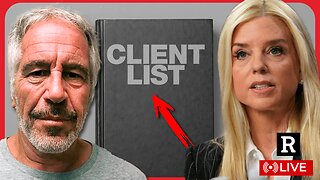Premium Only Content

The Basket of Severed Hands the European Holocaust -10 million Africans
The Hidden European Holocaust: 10 Million Africans Raped and, Slaughtered. My Name is, Mariya Oktyabrskaya.
The horrors in the Congo at the hands of Leopold do not elicit the same outrage as compared to the mentioning of evil men like Hitler.
The relentless pursuit of profits in the Congo by King Leopold II resulted in one of the worst levels of moral decadence for mankind. The colony in the Congo – the Congo Free State – was the personal property of the Belgian king and there was little oversight over what happened there.
King Leopold II committed heinous atrocities in the name of chasing profits and raising the prestige of Belgium. The genocide in the Congo is one of the most forgotten pieces of history, but the damage has been long-lasting. From 1885-1908, the Congo Free State under the personal rule of King Leopold II was a living hell.
The scramble for Africa by European countries was an intense one, and Belgium, under the monarchical rule of King Leopold II did not want to be left out. Leopold had always been of the view that in order to raise the prestige of Belgium higher (thus raising the status of the country) it was necessary to acquire a colonial empire in the Far East or in Africa. The concept of acquiring a colony was not popular with Belgian politicians and the public. It was considered an unnecessary venture that would add little value to the country. The reluctance of the politicians to accept an adventure towards acquiring colonies could not deter Leopold from getting a colony of his choice.
He instead shifted his focus to explorers and missionaries. Spurred by the recent reports from Central Africa at that time, he began sponsoring explorers, including Henry Morton Stanley. Leopold then established the International African Association – which was purported to be a “charitable” organization on a mission to “spread humanitarian assistance and civilization” to the natives in the Congo.
The organization was handed the rights to oversee the exploration and surveying of territory around the Congo River. In reality, the organization was up to no charity but was solely for profits in the Congo. At the Berlin Conference of 1884-85, the territory controlled by Leopold (totaling 2,350,000 km2) was recognized by other European leaders. The Congo Free State was then meant to be a free trade area and buffer state between British and French spheres of influence. The takeover of the Congo for Leopold’s personal rule had been complete.
The Congo Free State was a patchy colony since the Belgian government had not officially annexed it. Being under the personal rule of Leopold, he did as he pleased to maximize profits. At first, the colony specialized in ivory exports, but this was not as profitable as the investors, administrators, and Leopold himself had thought it to be. The colonial administration was always in debt, but the invention of the car and the subsequent demand for rubber changed the colonial fortunes of Leopold.
The dramatic increase in the demand for rubber was music to Leopold’s ears. At that time, the Congo was one of the places in the world with a vast supply of wild rubber. The focus was immediately turned toward the extraction of wild rubber. They used the local people as cheap labor, and the gruesome brutality that came with the extraction of rubber remains one of the darkest chapters in the history of Africa. Congolese males were forced into rubber extraction for export to Europe and North America. Between 1895 and 1900, exports surged from 580 to 3,740 tons.
Concessions were granted to private companies to extract the rubber. All vacant land in the interior – including uncultivated land and all forests – was declared to be “uninhabited” and thus belonged to the state. It effectively and expressly implied all resources in the Congo were under direct colonial ownership. The rest of the land was personal private property for Leopold, and he never set foot in the Congo. The Force Publique – a colonial military force in the Congo at the time, employed vicious and barbarous methods to ensure the unending, uninterrupted extraction of rubber from the local people. The Force Publique comprised white officers and African soldiers. The soldiers included original recruits, orphans, and slaves.
Rubber quotas were imposed on villages and the Force Publique was called in to enforce these quotas, which were unrealistic to fill. Failure to meet the quotas was punishable by violence and death. The Force Publique would destroy villages, rape women, take hostages, torture, and extort the people. Men who could not fill their quotas would be mutilated and/or killed. At times whole villages that could not fill their quotas would be burned down to the ground as a lesson for other villages. Women and children would be taken hostage until the men filled their designated quotas. The women would be raped. The furiously high demand for rubber in the 1890s saw the colonial administrators impose quotas that were unachievable. Those who resisted had to be killed, and that meant the use of arms. Ammunition was expensive to import from Europe, therefore, to account for the bullets used in killing people, soldiers were supposed to bring a hand for every bullet used. For every person shot and killed, providing a hand was evidence of a real killing and not a wastage of bullets. The administrators believed some of the bullets would be wasted by soldiers hunting. The basket of hands became a grisly nightmare of Leopold’s Red Rubber Terror in the Congo. For proof of the killings done, hands cut off from the victims were supposed to be availed. Sometimes the soldiers would be paid for severed hands because it was proof that they were carrying out the system of terror in the colony.
Nothing was regulated by law, there was little oversight since private companies were given the power to control the entire production process which included the extraction of rubber. In essence, the rubber quotas were paid off in chopped-off hands. The hands were collected by the Force Publique soldiers, but sometimes hands were also collected by the villagers themselves. Since the rubber quotas were unrealistic to fill, small wars would break out between villages in which they would fight for hands. Hands were a way to buy the loyalty of the white officers to show that the system of terror to force rubber extraction was being implemented. Each hand proved a killing, but sometimes the soldiers would cut off the hands of victims to save ammunition – leaving the victim to either die or survive. It was a “cheating” way to save ammunition. The need for profits spurred incomprehensible human violence. It was an abysmal point in the history of mankind.
Peter Forbath, a historian remarked, “The baskets of severed hands, set down at the feet of the European post commanders, became the symbol of the Congo Free State. The collection of hands became an end in itself. Force Publique soldiers brought them to the stations in place of rubber; they even went out to harvest them instead of rubber They became a sort of currency. They came to be used to make up for shortfalls in rubber quotas, to replace [...]The people who were demanded the forced labor gangs; and the Force Publique soldiers were paid their bonuses on the basis of how many hands they collected.”
The imposition of colonial rule on Belgium for the King’s profits saw a gigantic reduction in the population of the local people – in what has been termed as the first genocide in the world. Since the rubber took center stage, little production of food took place. The result was famine and starvation which killed many more people. Some men who refused to comply with colonial orders were taken to prisons where the conditions were deplorable, resulting in mass death. The white people imported diseases on the local people including smallpox, venereal diseases (syphilis and gonorrhea), and amoebic dysentery. Sleeping sickness was also a major killer. There was no concern for health and the dignity of the person, it was all about chasing profits.
It took the complaints of the missionaries for these atrocities to finally end. They reported the horrors to the United Kingdom and the United States, and the hell in the Congo became public. The Belgian government officially annexed the colony in 1908 but the Africans were still beholden to supply their labor to European industries and companies in the Congo. The Belgian monarchy and government have not yet apologized for the atrocities in the Congo – where estimates of the dead climb up to 10 million people. The Rubber Terror in the Congo has been recognized as “the hidden holocaust.”
The horrors in the Congo at the hands of Leopold do not elicit the same outrage as compared to the mentioning of evil men like Hitler. History has been whitewashed to present Belgium in a favorable light. The education system does not fully highlight the horrors of this period with the exact details. Leopold’s colony was called the Congo Free State, but there was absolutely nothing free about the colony; it was hell on earth.
Are you impressed? have any concerns? or, think we can improve this article?
-
 1:10:59
1:10:59
FreshandFit
3 hours agoTop 3 Ways To Overcome A Break Up
24.5K2 -
 LIVE
LIVE
Akademiks
4 hours agoDrake Finally CUTS off FAKE FRIENDS in the Industry. VIOLATES KHALED, LEBRON! Announces album Feb14
3,288 watching -
 27:28
27:28
Glenn Greenwald
7 hours agoGlenn Reacts to Trump's Gaza Take Over: System Update Special
132K241 -
 2:13:49
2:13:49
Melonie Mac
4 hours agoGo Boom Live Ep 36!
52.8K8 -
 1:02:11
1:02:11
Sarah Westall
4 hours agoFreezing USAID & its Operations in Ukraine: A Massive Money Laundering Organization? w/ Sam Anthony
58.7K5 -
 2:05:35
2:05:35
Space Ice
7 hours agoSpace Ice & Redeye: Neil Breen's Pass Thru
16.4K1 -
 1:00:23
1:00:23
The StoneZONE with Roger Stone
3 hours agoRoger Stone Talks Trump’s Electric First 100 Day Agenda | The StoneZone w/ Roger Stone
23.4K6 -
 DVR
DVR
Redacted News
7 hours agoBREAKING! EPSTEIN LIST INCOMING UNDER AG PAM BONDI? DEMOCRATS FREAKING OUT, PRINCE ANDREW NERVOUS
168K239 -
 52:02
52:02
Candace Show Podcast
9 hours agoBecoming Brigitte: An Inaccessible Past | Ep 2
157K228 -
 2:07:26
2:07:26
2 MIKES LIVE
7 hours ago2 MIKES LIVE #176 News Breakdown Wednesday!
26.5K2